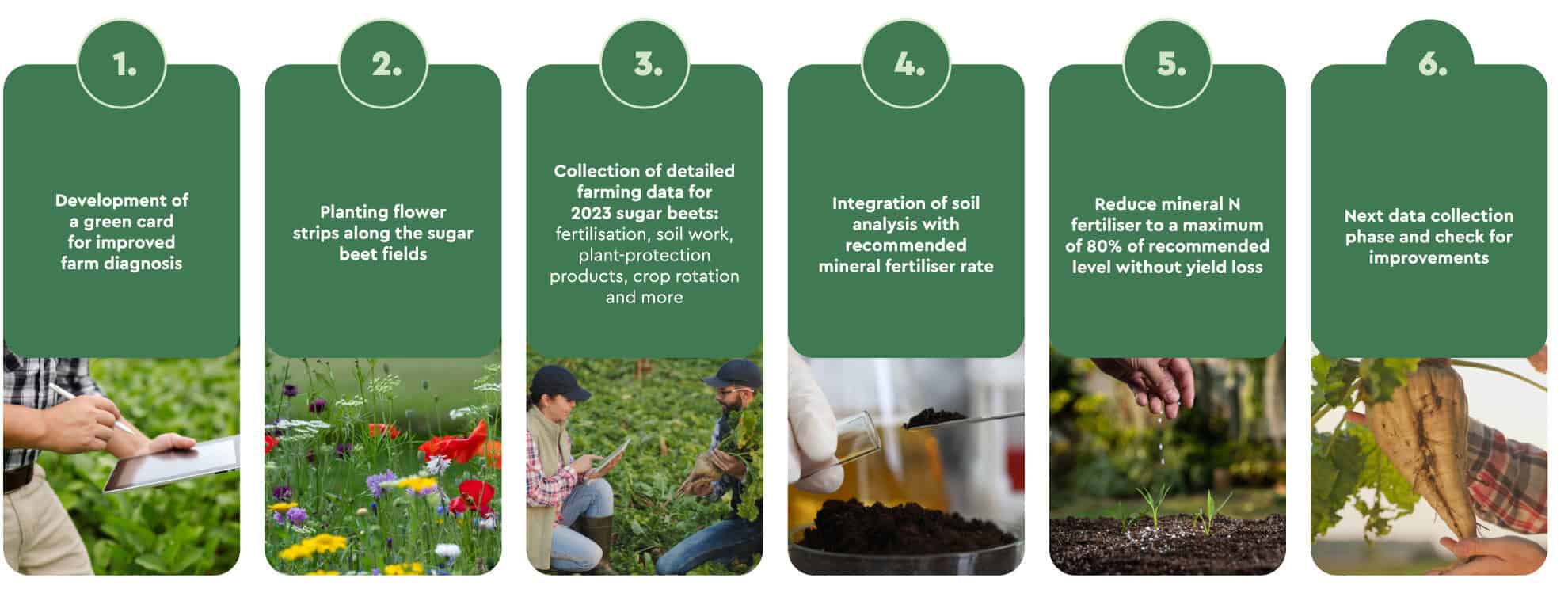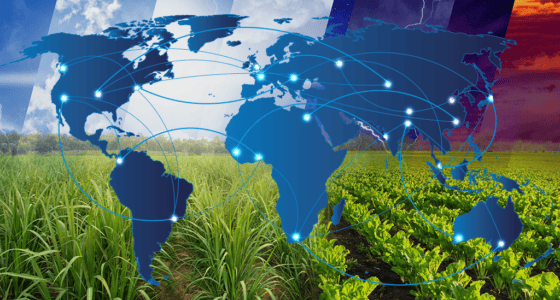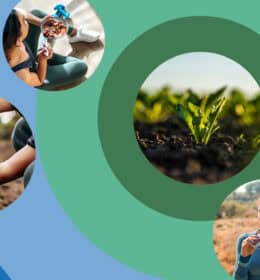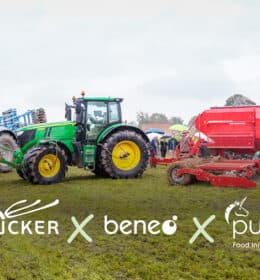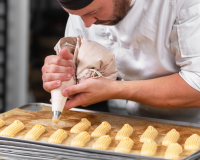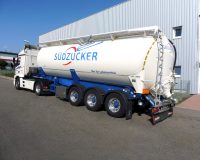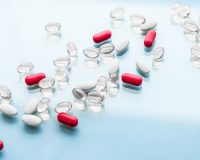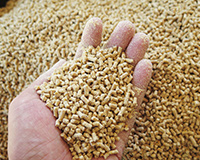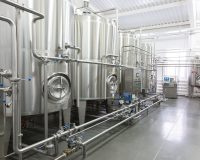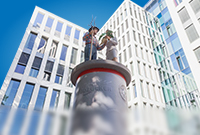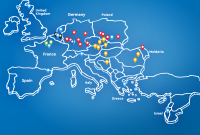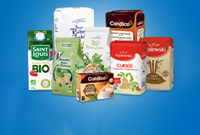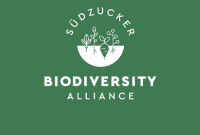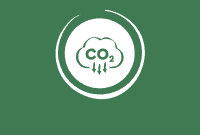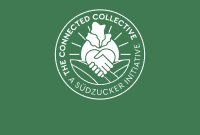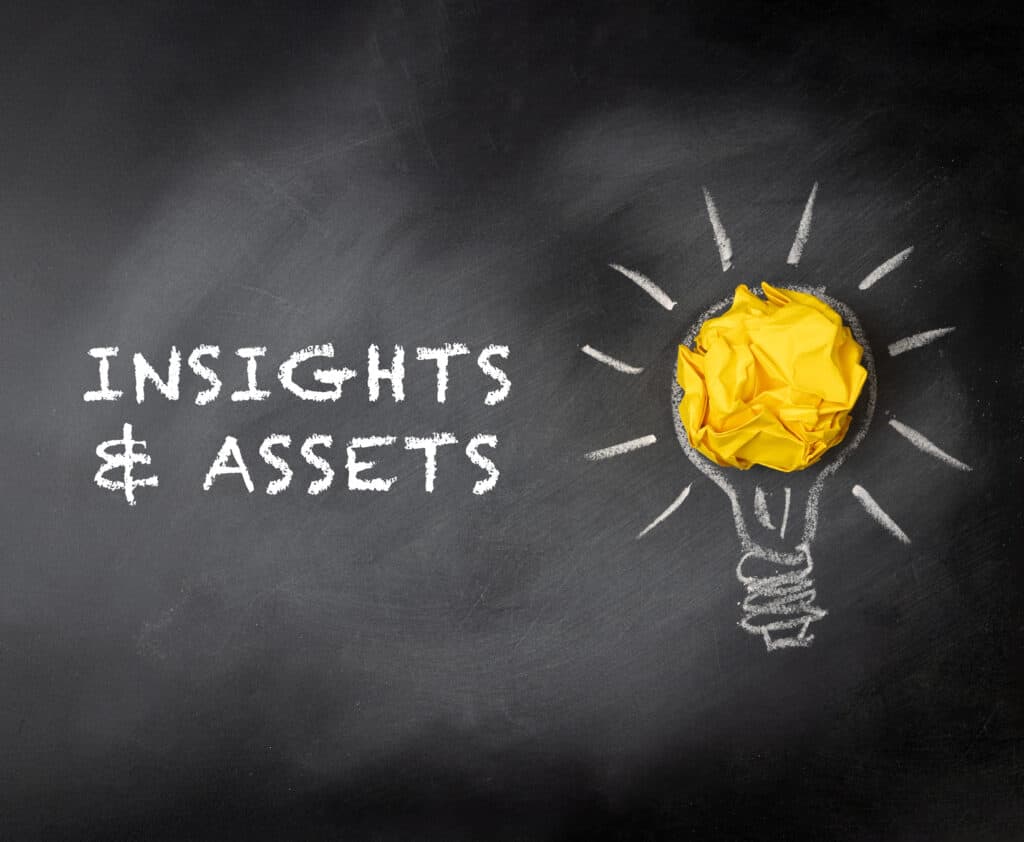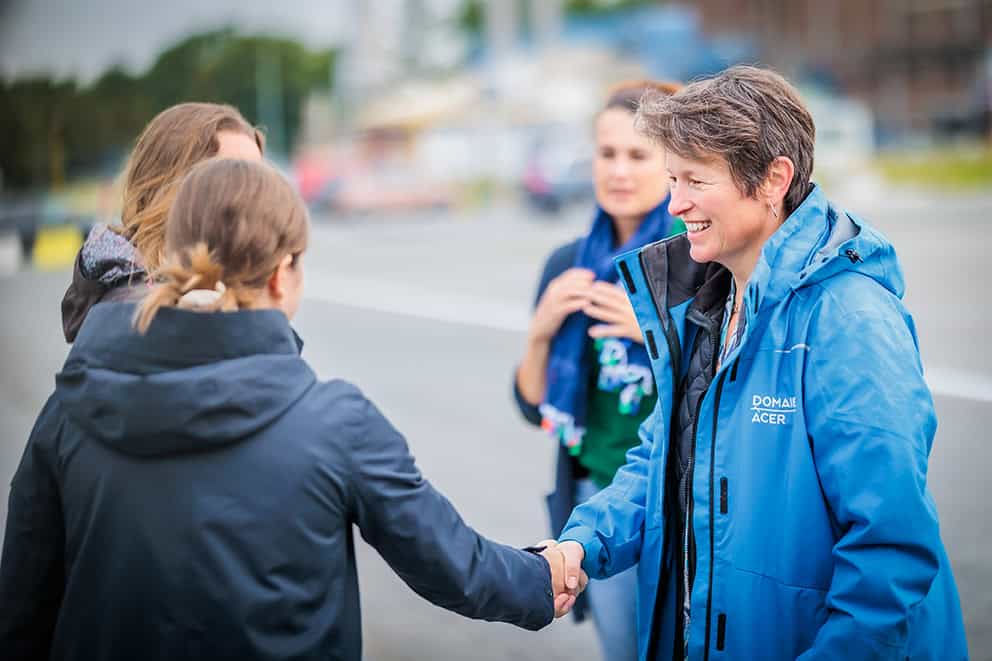
Team Up for Sustaining Tomorrow – A Strong Partnership for a More Sustainable Future
Today Sylvie Decaigny, Sustainability Agro Manager at Raffinerie Tirlemontoise in Belgium, which is part of the Südzucker Sugar Division, answers us 5 questions about the importance of regenerative agriculture for a sustainable future, the role of collaboration and the initiatives that Südzucker is undertaking in this area. She also provides insights into the key findings of the Climate Farming Project, a collaboration between Raffinerie Tirlemontoise, BENEO and Puratos, with the aim to empower Belgian farmers to implement more sustainable farming practices and promote regenerative agricultural principles that improve soil health and reduce environmental impact.
Südzucker: Why is regenerative agriculture a central component for a more sustainable future?
Sylvie Decaigny: I think it is capital to work on regenerative agriculture because it’s a question of ensuring the future of the entire food production in Europe at acceptable cost for consumers.
Seen from the farmer’s point of view, it is not just a beautiful story of biodiversity and carbon reduction, it’s also a question of cost and rentability, when we speak about regenerative agriculture. For the farmers, it is quite big investments and also sometimes more risky techniques. So, we shouldn’t underestimate the cost for the farmers.
Regenerative agriculture is taking care of the soil and taking care of biodiversity. When we speak about regenerative agriculture, we speak about restoring. And how do you do that? We do that by improving the organic matter content in the soil and by improving soil structure, the soil health. By increasing the fertility of the soil, you can decrease the mineral fertiliser utilization. You act directly on the greenhouse gas emission of Scope 3. When you have a low organic level in the soil, you have to compensate with mineral fertilisers. As we know, mineral fertilizer (nitrogen) is the main responsible for GHG emissions. This is the main lever to work on.
And by increasing soil health, we also improve life in the soil: microbial life, fungi, insects and worm populations increase. This is also part of the biodiversity. And when soil is alive, it can better defend itself against some diseases and some pests, water drought and so on.
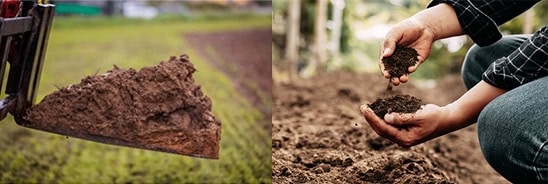
Südzucker: What role does collaboration between farmers, customers, and other stakeholders play in the value chain to drive sustainable change in agriculture?
Sylvie Decaigny: Today, for all parts of the value chain it is an obligation to be linked with the previous part of the chain. I now see customers showing interest in what happens in agriculture. And this leads to a new way of working. It’s a connected way of working and it’s very appreciated because everyone in the value chain can explain their needs, their challenges, their costs and this leads to more understanding.
When we started the Climate Farming Project, we were convinced that we had to start something with representatives from across the value chain and make them all aware of the context of others, and that also includes farmers, of course. At the beginning, farmers were all curious to know what we speak about when it comes to sustainability, not really a concrete word. And in the beginning, my dream was to have also a customer attached and so I searched, and I got in contact with Puratos through one of my LinkedIn contacts. This is when Puratos came in the play and in 2023 we started the story.
Get to know „The Connected Collective“ Südzucker‘s understanding and approach to more regenerative agricultural practices and how we are working together with our beet farmers, to make beet cultivation more sustainable.
The Climate Farming Project is not purely customer centric, I would say it’s sector centric. Meaning that if you are just looking at the challenges of the customer, you forget the farmers, and our aim was to make the link between the farmers and the customers.
We started with 15 farmers, the customer Puratos and us in between as facilitator or call it catalyst. We put the boots on, and we all went on the field together. I remember the first time we went to the field; it was raining. This was real conditions with the rain, the mud, the people. It is a question of people and not just of raw material, of commodity. It’s not only customer centricity but also farmer centricity and we made the link between both.
The first stage was to say we have to jump into sustainability. The questions were: How and what do we speak about? What are the levers? What are the really accurate techniques in the field? We defined with the Climate Farming Project, let me call it a kind of “open air lab” on the field. We said let’s go out of our usual business and have a look at what happens on the field. And so, with some farmers, that we call “front runners”, we spoke about the context of legislation, we spoke about the needs of the industry and about what they are doing. We asked “What is new in the way of working? How do you protect your soil ? What are the new machines for this?” And so, this was our “open air lab” approach.
At the second stage we set the objective to reach also for more farmers. We thought about how to fill the gap between the front runners and the other ones and so with all this experience from 2-3 years of the project, we decided to jump into the scale up phase. In 2024, we started with the six concrete actions (editor’s note: those actions are called “sustainability approaches”) to all farmers based on the Climate Farming Project. In 2025 we proposed the same actions to all our farmers. Our next challenge will be to make the project more robust for the data collection, for the training, for the communication.
Our Six Sustainability Approaches
Südzucker: What is your key takeaway from the Climate Farming Project together with BENEO and Puratos when it comes to sustainable farming?
Sylvie Decaigny: My key takeaway from our Climate Farming Project is that we have to go deeper into the needs of the customers. Through the Climate Farming Project, we learned a lot about the customer. They spoke about their challenges. All they deal with. They explained their strategy for sustainability. And I learned also that all the companies, even us and Puratos, were only at the start of the story. We build together. This is interesting also because we impose nothing. We discuss and we create.
And my key takeaway with the farmers is that they need a bottom-up approach and not an academical approach like we did in the past. Farmers don’t want to lose time in a conference room. It is better to go to the field and there they can exchange with their peers, with agronomists.
But they also need to have some scientific validation. And this is also important to keep it in a good tunnel. And for this we need also the approach from the scientists, but on real support and not only on academic level by giving lessons.
And finally: It is collective, and it is collaborative. That’s a keyword for regenerative agriculture and that’s what we did also for the development of the Green Card, our diagnostic tool at the farm.
We started its development at the beginning of 2020, and we discussed it with 3 other companies actives on the same territory with mainly the same farmers . Actually, we have the same challenges. It was obvious to work together to develop our common diagnostic tool at the farm level, the Green Card. In this way, the farmers use only one tool for different buyers. The need of collaboration is a key takeaway for this Climate Farming Project
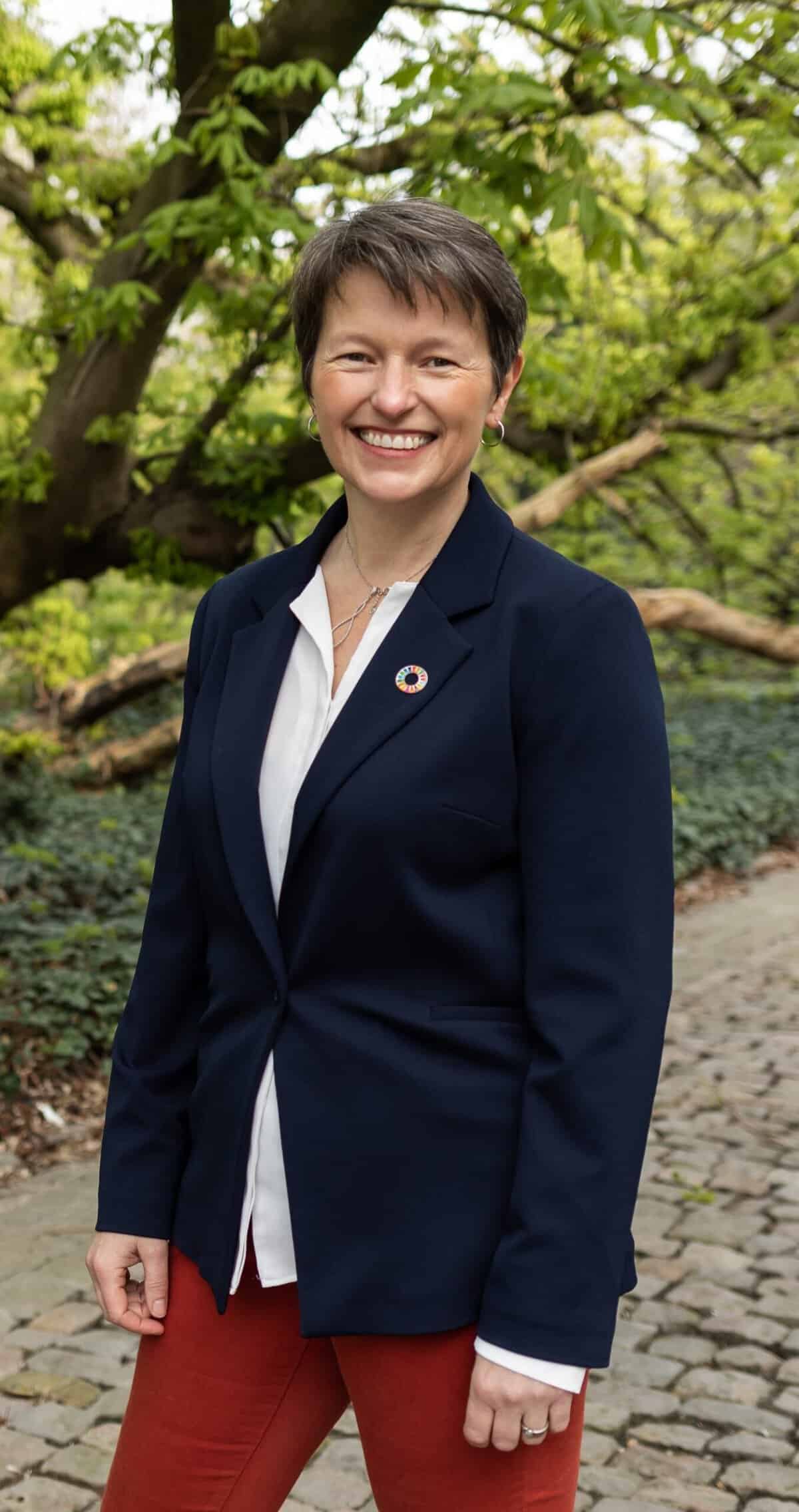
Sylvie Decaigny is Sustainability Agro Manager at Raffinerie Tirlemontoise in Belgium, part of the Südzucker Sugar Division. Agriculture and environment have been the focus of her career from the start. During her master studies in Agronomy and Crop Science at the Université de Liège (Gembloux), she gained deep knowledge of agricultural processes and soil sciences.
After graduating, she started working in 1996 in supply chain management at Raffinerie Tirlemontoise, part of Südzucker Group. Now she is in charge of the sustainability of raw materials and the development of projects and actions related to regenerative agriculture.
As bioengineer, she focuses on sustainable agricultural practices and protecting natural resources across the value chain. Beyond her professional responsibilities, she is also involved in efforts to improve biodiversity and agricultural resilience.
Südzucker: What makes Südzucker a strong partner when sourcing products coming from agriculture?
Sylvie Decaigny: I would say without us in between, players like our customers could not really get access to this level of insights on the farm, on taking actions on farm level. It is a farmer’s specific world, and we know this world because we have been there for a long time. We work in Belgium with 15 agronomists and each of them visits more or less 300 farms per year. And they build a strong and trustful relationship with the farmers. This is the key in our business, because they have a direct link, they know the problems of the farmers, they know the grounds, the context of the farm, the family, they know really a lot. This is a trust relationship. This connection with the farmer was built over several years. I think it’s important, for example, for sustainability, we try to be people speaking to the farmer and not a company speaking to the farmer. It’s a human relationship built on trust.
Südzucker: Why should another food providing or food producing company collaborate with Südzucker, and why should they Team Up with Südzucker for Growing Tomorrow?
Sylvie Decaigny: Our main strength is that we can connect farmers and customers, we are really close to them. We understand their challenges and the different contexts in different countries where we are based. This is also a good point because we can supply customers from different factories in the EU.
What is also really a strength to work with is our robustness. If we tell something about the emission factor or about greenhouse gas, maybe we are not the first to say this, but we are sure that it’s validated. We are always scientifically based we are always sure of what we are explaining. This is a question of trust and of confidence and I think it’s really a very high strength even if sometimes it takes more time.
Südzucker: Thank you, Sylvie, for the interesting insights. Could you finish by telling us what you ‘re proud of, when it comes to Südzucker and its role in the industry?
Sylvie Decaigny: We have this responsibility as a large company to make a change to go for the transition. It’s a responsibility also to the citizens, to the people and to the future of our company and of the farmers. I’m proud because when Südzucker announced this new sustainability strategy , its eight impact areas and so on, I felt the change happening.
It’s really aligned with my own values. You know I’m really convinced by our environment, biodiversity, climate change. It’s really strong in my heart and I felt really aligned with Südzucker and with Raffinerie Tirlemontoise.
It was a good time to start it, just not too early, but not too late. And so, I was very proud to be able to come with support, come with ideas, to come with projects and to be part of the story.
Download our Climate Farming Case Study of beet cultivation in the Belgian market to get to know our “green card”, the diagnostic tool at farm level.

